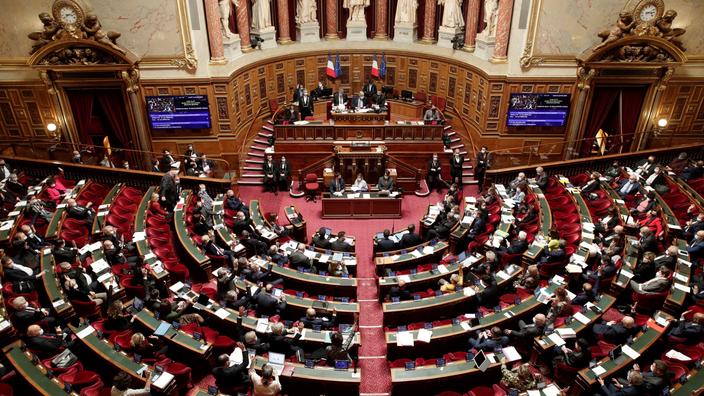The Senate with a right-wing majority is considering Wednesday, January 19 at the end of the day on a bill aimed at better protecting whistleblowers, with the objective of finding a compromise with the Assembly after being accused of
"blasting"
by associations.
Read alsoA bill to better protect whistleblowers
Worked with the Ministry of Justice, the Council of State and associations, the bill brought by the deputy Sylvain Waserman (MoDem) plans to better define the status of whistleblowers and guide their procedures, better protect them as well than those assisting them, and facilitating their financial and psychological support, among other things. It transposes into French law a European directive of 2019, going beyond what is required by European law. And intends to correct the imperfections of the pioneering law in this area - known as "Sapin II" - of 2016.
The bill was passed unanimously at first reading by the National Assembly last November. But its examination in committee in the Senate, in December, had caused a stir, the associations rising to the crenel against
"a blasting"
of the text. The House of Whistleblowers, which brings together organizations, associations and unions, also called for
"a citizen rally"
Wednesday morning in front of the Senate, with
"the participation of whistleblowers"
. She denounces
“the regressive proposals”
adopted by the Senate Law Commission,
“which constitute extremely worrying attacks on the rights of whistleblowers and the freedom to inform and alert”
.
“Setbacks beyond comprehension”
“You have to know how to let go of the ballast”
, for her part declared to AFP the rapporteur for the text in the Senate Catherine Di Folco, a few hours before the start of the debates in the hemicycle.
The rapporteur will propose to her colleagues to return, in Article 1, to the definition of whistleblower as written by MEPs.
This is a major point of concern for associations.
The text adopted by MEPs defines a whistleblower as
"a natural person who reports or discloses, without direct financial compensation and in good faith, information relating to a crime, an offence, a threat or harm to the General"
, or a violation of an international commitment of France. The Senate Law Committee had rewritten this definition, removing the notion of
"threat or harm to the general interest"
, replaced by that
of "acts or omissions going against the objectives pursued by the rules of right”
.
"I want to go as best as possible towards a compromise with our colleagues in the National Assembly
," said Ms. Di Folco,who nevertheless wishes
“keep on progress”
that she thinks
“is healthy”
.
Such is the notion of
“seriousness”
of the facts concerned.
Read alsoWhistleblowers: how are they protected?
Another modification which worries the associations concerns the protection of the
"facilitators"
, who accompany the whistleblower. Only natural persons would no longer be recognized as facilitators. After the examination of the text in committee, a month ago, the Defender of Rights Claire Hédon had mentioned
“a clear decline”
compared to the text adopted by the deputies. In a column in the newspaper
Le Monde
published last week, a group of whistleblowers, including Irène Frachon (Mediator) and Antoine Deltour (LuxLeaks), had also expressed concern over
“setbacks that go beyond understanding”
.
The rapporteur hopes to be able
to “bring down the soufflé”
in the hemicycle by
“explaining things well to iron out these doubts”
.
A hundred amendments should be debated in session.
At the same time, the Senate will examine a proposal for an organic law which extends the missions of the Defender of Rights to whistleblowers.
Once the text has been voted on by the Senate, deputies and senators will try to reach a compromise in a joint committee.
In case of failure, the National Assembly will have the last word.
The next meetings are set for February 8 at the Palais Bourbon and February 16 in Luxembourg.

